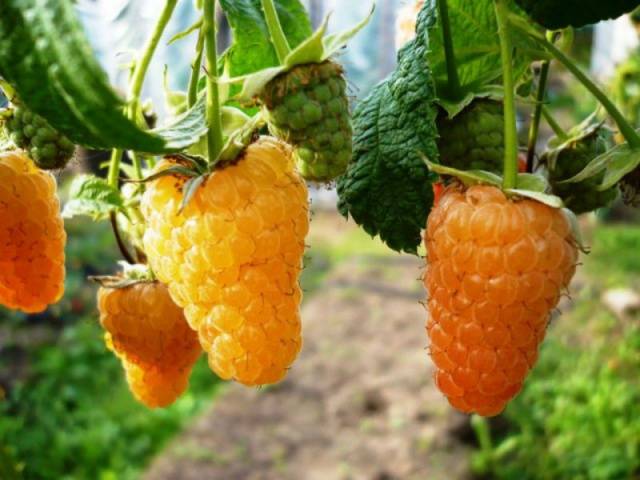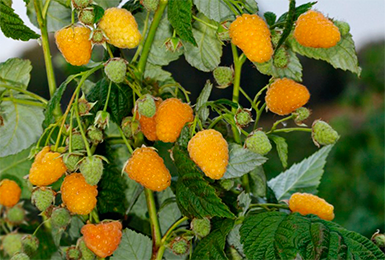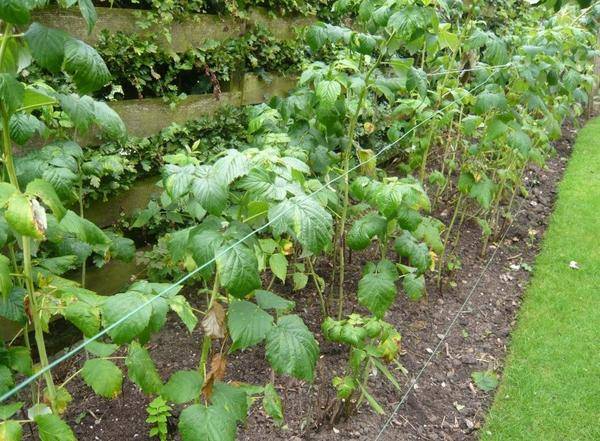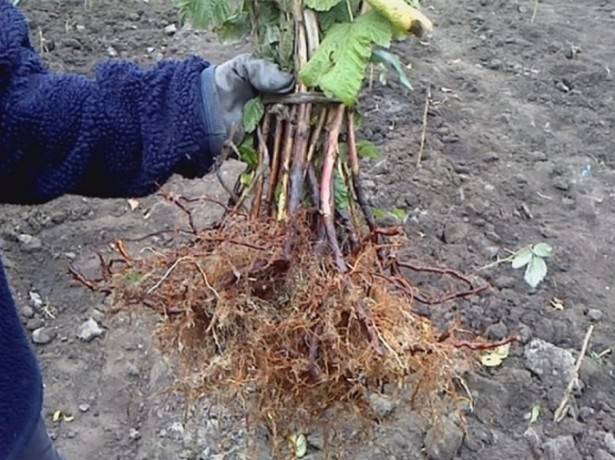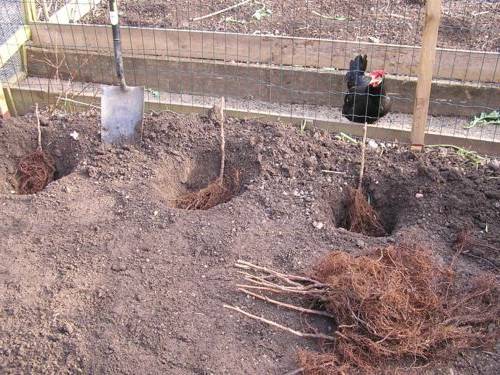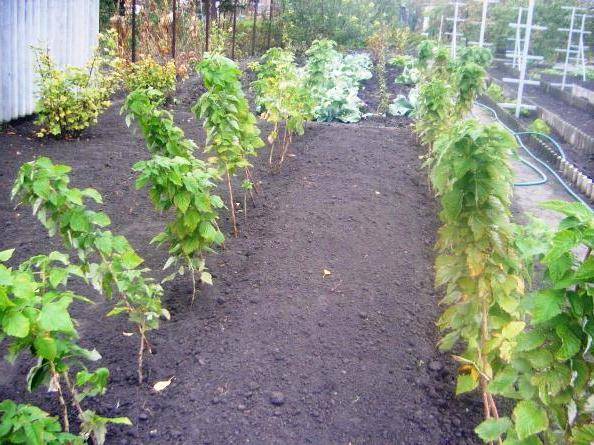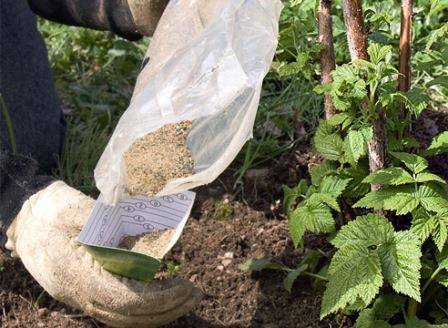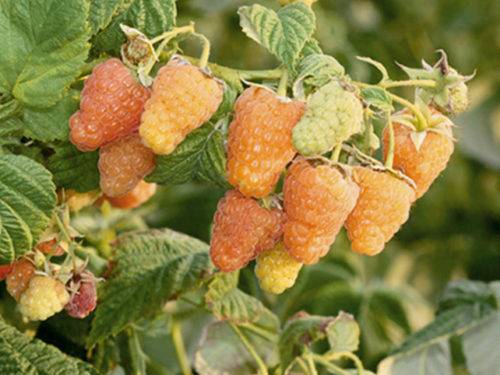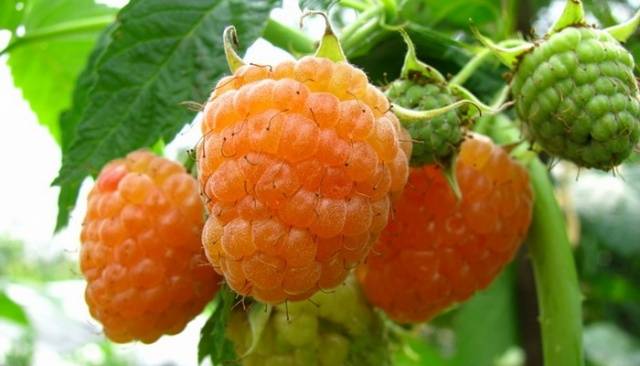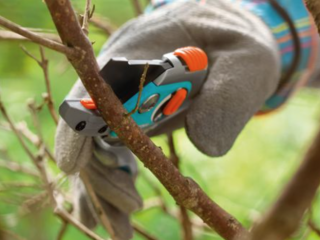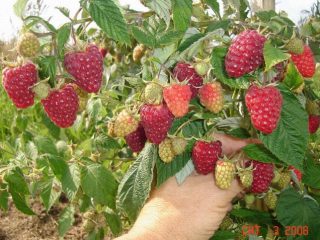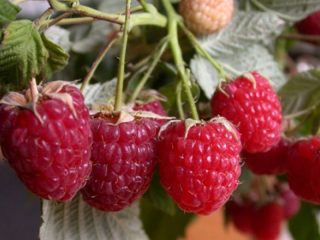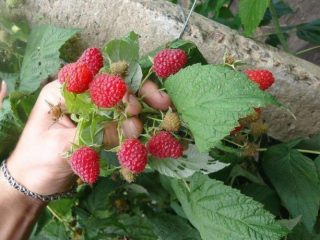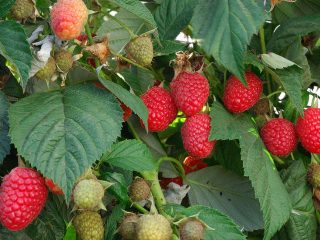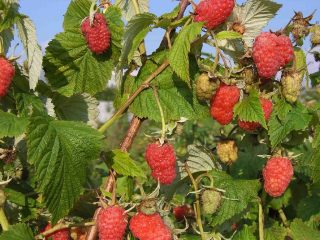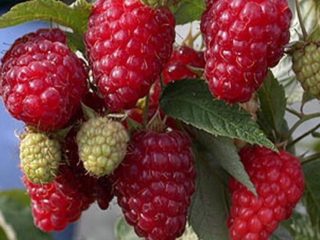Content
Gardeners and gardeners happily grow raspberries on their plots. She has deservedly become the favorite of many. Today there are a huge number of varieties of this delicious berry. Among them you can find early and late ripening varieties, large-fruited and traditional. They all have their own advantages, but are practically the same in appearance. In this article we will learn about a variety that distinguishes itself from others due to its color. Raspberries “Golden Autumn” have received many positive reviews from gardeners who have already grown them on their plots. Therefore, it is worth considering the description of the raspberry variety “Golden Autumn”.
Characteristics of the raspberry variety
This variety belongs to the remontant large-fruited raspberry. Berry has yellow color with a golden tint. Raspberries are quite large and each fruit can weigh up to 5 grams. Individual berries from the first harvest weigh about 7 grams. The shape of the fruit is conical, the drupes are tightly connected to each other. It is noteworthy that the berries are very dense. This makes transportation much easier.
These raspberries are classified as dessert raspberries. It has a light raspberry flavor, quite juicy and sweet. Raspberry productivity is consistently high until frost. The berries are eaten fresh and after heat treatment.They make excellent jam and compotes. In the middle zone, the berries begin to ripen towards the end of August. Below you can see a photo of “Golden Autumn” raspberries.
Since the raspberry variety tolerates frost well, it can be grown without fear in the northern regions of the country. But bushes should be planted only on the south side. To do this, choose areas covered from the north by buildings. The choice of soil for growing Golden Autumn raspberries is also of no small importance. The soil should be loose and fertile. Areas with highly acidic soil are not suitable for this purpose. In addition, raspberries love good lighting. Therefore, there should be no tall trees or other shrubs near raspberry bushes.
The variety does not require complex care. It is necessary to regularly loosen the soil, watering, fertilizing and pruning. Detailed instructions for caring for this variety will be described below. Raspberries respond well to the application of mineral fertilizers. In the first months of summer, when the green mass is actively developing, fertilizers containing nitrogen should be used. Then whole complexes of minerals with potassium, phosphorus and nitrogen are added.
Preparing for landing
Yellow raspberries “Golden Autumn” are planted mainly in September and until mid-October. This is an ideal period that will allow the seedling to take root and strengthen the root system. As a result, you can get a wonderful harvest of ripe berries.
It is very important to choose high-quality planting material. In this case, special attention is paid to the appearance of the shoots and roots. The shoots on the bush should be straight, without any damage or flaws.The roots cannot be dry and lifeless. On sale you can find specimens with closed and open root systems.
Next, you need to decide on a place to plant the bushes. As mentioned above in the description of the remontant raspberry variety “Golden Autumn”, such a site should be located in a well-lit place, without drafts and northern winds. Groundwater can lie at a depth of about 1 meter from the surface of the earth. Raspberries "Golden Autumn" grow well in areas where peas, mustard and tulips were previously grown. But after potatoes, tomatoes and peppers, the yield of berries may be reduced.
To prepare the beds, it is necessary to dig up the soil, at the same time adding organic fertilizers with the addition of mineral complexes. Humus and any mineral supplements for raspberries are suitable for this. Take about a bucket of organic matter and 0.3 kg of mineral fertilizers per square meter of land. If the soil is acidic, it must be limed.
Planting bushes
There are different ways to plant raspberries. To do this, dig long trenches or separate holes. There should be at least 1.2 m between the rows of bushes, and approximately 0.7 m between the raspberries themselves. The depth of the hole is determined individually according to the height of the bush. The main thing is that the root collar is on the surface of the soil.
Bushes with a closed root system must be watered abundantly so that it becomes soaked and the seedling can be removed. Then the bush is lowered into the prepared hole, covered with earth, compacted a little and watered thoroughly. After this, it is necessary to mulch the soil using peat.
Saplings with an open root system are planted in the same way, only before this the bush needs to be dipped in a solution of water and growth stimulants for a couple of days. Reviews from gardeners confirm that “Golden Autumn” raspberries bear fruit well only if they are properly cared for and planted.
Proper care of raspberries
Based on the above, it becomes clear that the remontant raspberry “Golden Autumn” loves light, moderately moist fertile soil. Accordingly, caring for her involves creating such conditions. Loosening the soil plays an important role. As you know, this procedure gives the roots access to oxygen.
The first loosening is carried out before the buds begin to swell. As a result, the plant will be saturated with oxygen and begin to grow. In parallel with loosening, it should be removed from the site. weeds. The soil is plowed to a depth of no more than 8 centimeters. Next, the soil is loosened as needed, taking into account the condition of the top layer of soil.
The next important step is watering the raspberries. For convenience, gardeners often use a hose. Water for irrigation should not be cold. It is advisable that watering be plentiful. The soil should get wet to a depth of about 30 centimeters. There is no need to irrigate the soil very often; once every 7 days is enough. If the summer is very hot and dry, you can do this more often.
Next, let's talk about feeding the bushes. If the planting of seedlings was carried out according to the scheme described above, then it is not necessary to fertilize the raspberries for the next 2 years. The fertilizers used will be sufficient for this time. Fertilizing begins in the third year of bush growth.
The following fertilizers are used as fertilizers:
- In spring, it is necessary to apply nitrogen fertilizers to activate the growth of raspberry seedlings. For example, “Nitroammofoska” is suitable for this. The best time for feeding is early spring (as soon as the snow melts).
- Two or three times a season you should water the raspberry bushes with mullein solution. To do this, mix a liter of fertilizer and 10 liters of clean water.
- In autumn, raspberries are fed with fertilizers, which include phosphorus and potassium. They are prepared according to the instructions.
Remontant raspberries bear fruit from young shoots. Therefore, it is cut off at the root. This is a very important and responsible stage in plant care. Pruning of bushes is carried out, as a rule, in the fall after harvesting or in the spring, when the snow has melted.
It is best to prune the shoots in the fall. In the spring, when young branches appear, it will be possible to prune again. In this case, the weakest or damaged shoots are cut off. If you want to get a good harvest of raspberries next year, be sure to prune the bushes in the fall and by spring the raspberries will sprout new shoots.
It is not necessary to build a shelter for this variety. The description of the “Golden Autumn” raspberry shows that the bushes are quite winter-hardy. But in some northern regions, winters are so severe that you have to cover your raspberry bushes to keep them from freezing. Most often, gardeners in such areas immediately build a raspberry garden.
If it is not possible to build a room for growing raspberries, you need to cover the bushes yourself. This is done as follows:
- If the bushes have not been pruned for the winter, they should be bent to the ground and secured with metal rods.
- Then the raspberries are covered with a special non-woven material.
- The roots are additionally covered with sawdust, leaves or hay.
Conclusion
This article reviewed the description of the “Golden Autumn” raspberry variety, as well as its photos and reviews from gardeners. As you can see, this is a wonderful variety with tasty berries and an unusual appearance. In addition, it has a high yield and tolerates frost well. Caring for the bushes is not difficult, and even inexperienced gardeners can cope with growing such a berry. We hope that the description of the “Golden Autumn” raspberry helped you make a choice, and you will definitely plant it on your site.
Reviews
